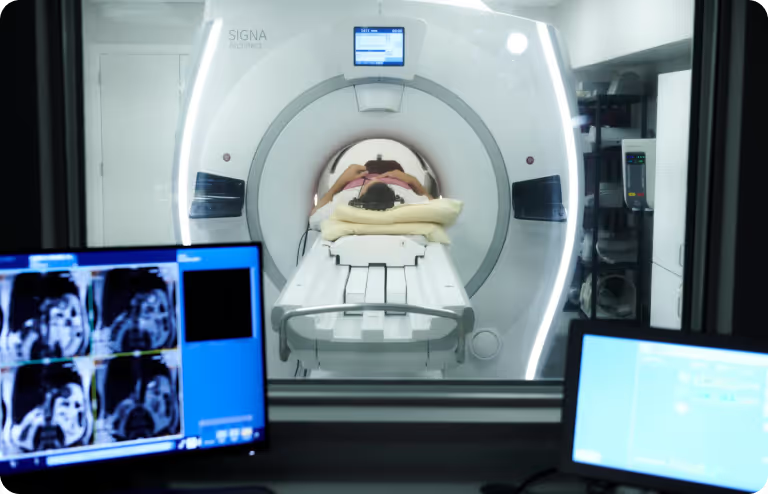CT Coronary Angiography Test (CTCA)
At Everlab, we offer CT Coronary Angiography, a cutting-edge, non-invasive imaging test that provides detailed insights into your coronary arteries, detecting blockages and early signs of heart disease. If you're searching for a CTCA test in Australia or considering a coronary angiography test in Australia as part of your preventive care, our advanced diagnostic approach gives you the clarity you need to take control of your heart health.
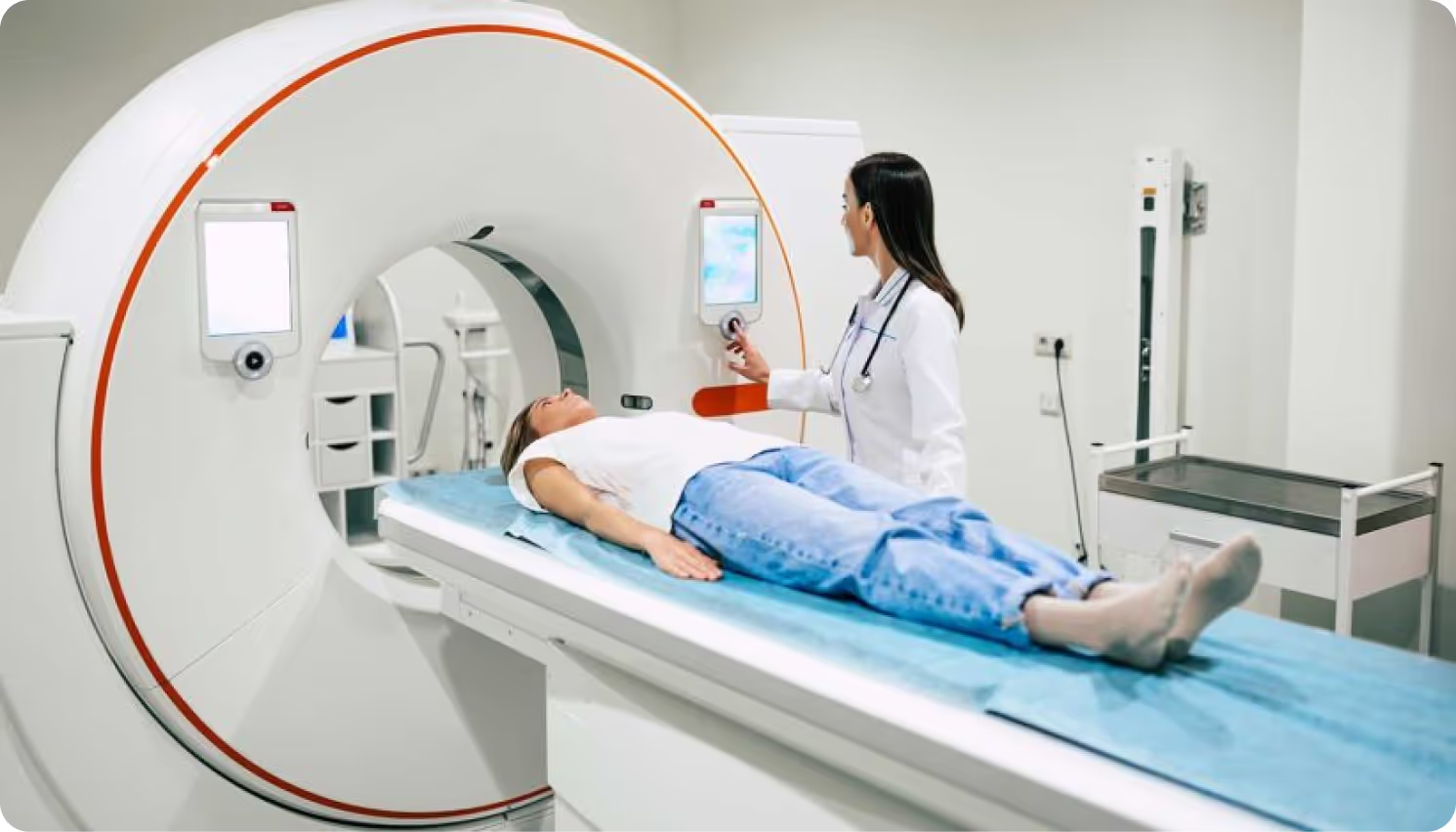
CT Coronary Angiography in Australia, Book Your CTCA Test Today
What:
Heart scan to detect plaque
Tests for:
Heart attacks, cardiovascular disease
Referral:
Required
Member cost:
$1,499
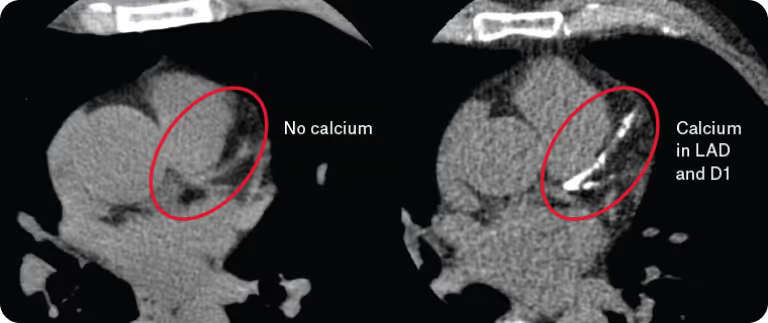
Overview: CTCA
What is a CTCA Test?
A CTCA scan is a specialised heart CT scan that helps doctors examine the arteries that supply blood to your heart. By using advanced CT scanning technology, a CT scan for heart blockage provides highly detailed images of the coronary arteries, allowing doctors to identify any blockages or narrowing that could lead to heart problems, such as coronary artery disease (CAD).
Unlike traditional angiograms, CT Coronary Angiography is non-invasive, meaning it doesn’t require inserting a catheter into the heart, making it a popular diagnostic tool for those seeking to understand their heart health without the risks associated with more invasive procedures.
Why is a CTCA conducted?
CTCA is typically recommended if your doctor suspects that you may have coronary artery disease or if you're experiencing symptoms like chest pain (angina) or shortness of breath. It's often part of a broader preventive health strategy to assess cardiovascular risk, especially for those with risk factors such as high blood pressure, high cholesterol, smoking, or a family history of heart disease.
What is the CTCA designed to show you?
The CTCA scan results provide clear and precise images of your coronary arteries, highlighting any blockages, narrowing, or calcifications that could impair blood flow to your heart. It’s highly effective at detecting coronary artery disease, even in its early stages. This information helps in the early diagnosis and treatment of conditions that, if left unchecked, could lead to heart attacks or other serious complications.
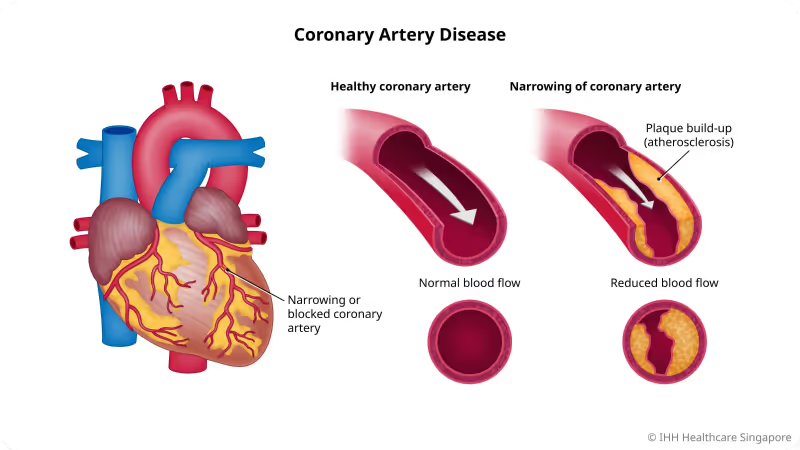
How much does the CTCA usually cost?
The CTCA cost in Australia can vary depending on where you get the test done. Typically, it ranges from $500 to $2,000, but private health insurance may cover part of the expense. At Everlab, we offer a full CTCA test as an add-on alongside our comprehensive testing regime for $1,499 which includes a consultation to walk through the results and outline risk reducing interventions.
Getting a CTCA
What should I do to prepare for my CTCA?
Preparing for a CTCA is relatively simple. You’ll likely be advised to avoid caffeine for 24 hours before the test and to fast for a few hours before the procedure. Certain medications may need to be paused, but your doctor will provide specific guidance tailored to your health needs.
You’ll also be given instructions on drinking plenty of water before the scan to ensure proper hydration, which helps with contrast dye administration and image clarity. This ensures the CTCA scan procedure runs smoothly and delivers clear results.
What’s the procedure for doing a CTCA?
Preparation:
Before your CTCA scan, your doctor may ask you to avoid caffeine and food for 4–6 hours to keep your heart rate steady, which improves image quality. You’ll be encouraged to stay hydrated and may be asked to stop certain medications temporarily. In some cases, a beta-blocker is given before the scan to slow your heart rate, ensuring the clearest possible images. It’s important to wear loose, comfortable clothing and remove any metal objects like jewellery, as these can interfere with the scan.
Scanning:
When you arrive at the clinic, you’ll check in and meet your care team. A small intravenous (IV) line is placed in your arm for administering the contrast dye—a harmless iodine-based solution that highlights your coronary arteries during imaging. You may also be fitted with ECG leads to monitor your heart rate throughout the scan. Once you're prepped, you'll lie on the CT scan table, which slides into the scanner.
The CT machine will rotate around your chest, capturing high-resolution X-ray images from multiple angles. These are compiled into a detailed 3D image of your heart and blood vessels. The scan itself takes about 10–15 minutes, and the entire visit usually lasts under an hour. The procedure is non-invasive and painless, although some people experience a brief warm or flushed sensation when the contrast dye is injected.
Recovery:
After the scan, you’ll be observed for a short time to ensure there are no reactions to the dye. You can usually resume normal activities straight away. Drinking plenty of water over the next 24 hours helps flush the dye from your system. Your results will typically be ready within 24–48 hours and reviewed during your next consultation.
How long does a CTCA go for?
The actual CTCA scan procedure takes about 10 to 15 minutes, but the entire procedure, including preparation, may take around an hour. This includes the time needed for inserting the IV for contrast dye and any pre-scan instructions.
Your CTCA Results
What do Everlab results look like?
At Everlab, we provide comprehensive and clear results from your CTCA, presented in a way that’s easy to understand, even if you don’t have a medical background. Our team of experts will walk you through the findings, highlighting any areas of concern and what steps, if any, you should take next to maintain or improve your cardiovascular health.
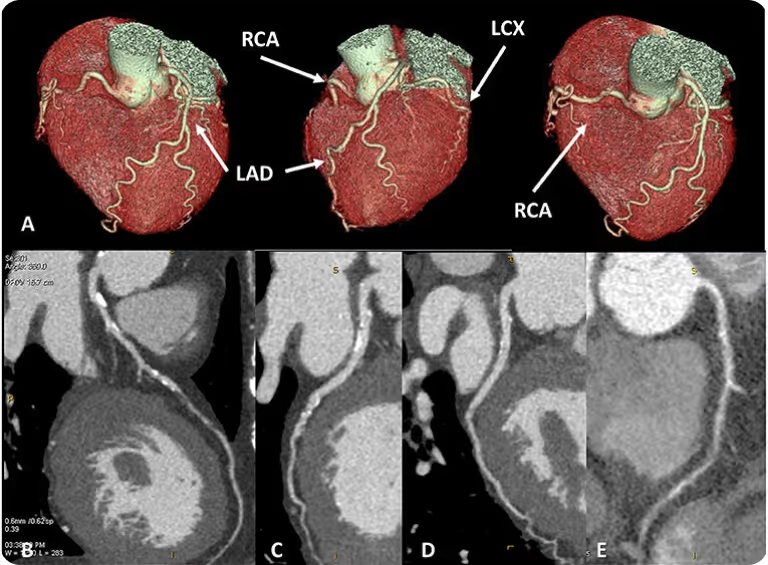
Do I Need to Send my results to Everlab?
As with blood tests, our team will be able to pull your CTCA test results, review them, and interpret them before your next consult with us.
What do the results mean?
Your CTCA results will reveal whether there are any blockages or narrowing in your coronary arteries. If no blockages are found, your heart health is in a good place, though lifestyle changes or medication may still be recommended based on other risk factors. If blockages or narrowing are detected, your doctor will discuss treatment options, which could range from lifestyle modifications and medication to more interventional procedures if necessary.
What should you do if you get an abnormal result?
If your CT coronary angiogram results show an abnormality, it’s important not to panic. Many people with early-stage coronary artery disease manage their condition effectively through a combination of lifestyle changes and medication. Everlab’s preventive health team will work closely with you to develop a tailored plan that suits your needs, helping you stay on top of your heart health.
Risks & Side Effects of a CTCA
What are the risks of getting a CTCA?
While a CTCA is generally safe, it does involve exposure to radiation. The radiation dose is relatively low and is considered safe for most people, but if you’re pregnant or have had multiple radiation-based tests, it's important to discuss this with your doctor.
Some individuals may also experience mild allergic reactions to the contrast dye used during the test, but this is rare and typically managed with antihistamines. If you are anaphylactic, the allergic reaction can be more severe and it's important to discuss this with your doctor.
What happens if you are prone to getting faint from tests?
If you tend to feel faint or anxious about medical procedures, let the team at Everlab know. We can provide additional support, such as offering reassurance or allowing more time for you to relax before the test. If necessary, we can also provide medications to help you feel calm during the procedure.
Are there any after effects of CTCA?
For most people, a CT Coronary Angiography (CTCA) scan is well tolerated with little to no after effects. The procedure is non-invasive and uses a low dose of ionising radiation to create detailed images of your coronary arteries. The contrast dye used during the scan is generally safe, but mild side effects can occasionally occur.
You might experience a warm flush or a metallic taste in your mouth when the contrast dye is injected—this is normal and passes quickly. Some patients feel a brief sense of nausea or light-headedness, particularly if they were fasting beforehand or given medication like a beta-blocker to slow the heart rate. These symptoms are temporary and usually resolve on their own.
Allergic reactions to the contrast dye are uncommon but possible. These can range from mild rashes or itching to, very rarely, more serious symptoms such as difficulty breathing. If you’ve had a reaction to contrast in the past or have known allergies, let your doctor know beforehand.
The amount of radiation used in a CTCA is relatively low and considered safe for most adults, but unnecessary exposure is avoided in pregnant women and children. After the scan, most people can return to their normal activities right away. Drinking plenty of fluids will help flush the contrast from your system. If any unusual symptoms appear, contact your healthcare provider.
What are the aftercare recommendations for a CTCA?
After a CTCA, most people can resume their regular activities immediately. However, it’s important to stay well-hydrated to help flush the contrast dye from your system. If you experience any side effects like dizziness or nausea, rest until you feel better and contact your healthcare provider if symptoms persist.
What Else Do I Need to Understand?
Can this indicate whether you have heart disease?
Yes, a CT scan for heart blockage can reveal the presence of coronary artery disease, a major type of heart disease. Early detection through tests like CTCA can significantly improve outcomes by enabling early intervention, whether through medication, lifestyle changes, or, in some cases, surgery.
Sources
1. InsideRadiology – Coronary CT Angiography (CTCA)
https://www.insideradiology.com.au/ctca
2. Heart Foundation Australia – Medical Tests For Heart Disease
https://www.heartfoundation.org.au/your-heart/medical-tests-for-heart-disease
3. Better Health Channel (Vic Gov) – Coronary Angiogram
https://www.betterhealth.vic.gov.au/health/conditionsandtreatments/coronary-angiogram
4. Radiopaedia – Cardiac CT
https://radiopaedia.org/articles/coronary-ct-angiography
5. Healthdirect Australia – CT Scan Overview
https://www.healthdirect.gov.au/ct-scan
Why is a CTCA so important?
The CTCA test is highly beneficial because it allows for early detection of heart problems, helping doctors find blockages in your heart's arteries before serious issues arise. It's a non-invasive procedure, meaning it doesn't require surgery or inserting instruments into your body, making it safer and more comfortable. Additionally, it provides quick results with detailed images, enabling doctors to make prompt and accurate decisions about your heart health.
